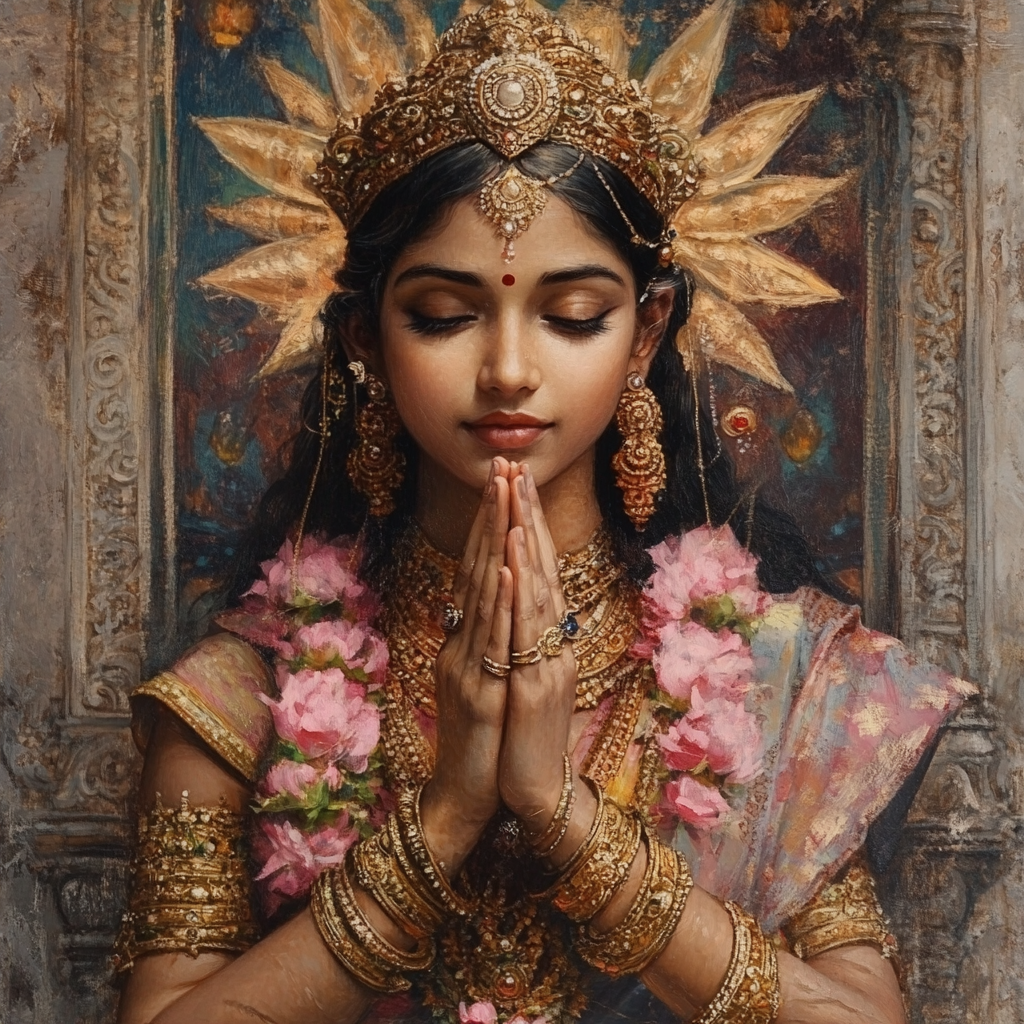In Western theology, God’s will is sovereign and immutable—unchallengeable even by His creation. But in the sublime world of Vedic thought, particularly within the Bhakti traditions and Purāṇic narratives, a breathtaking paradox unfolds: Krsna, the Supreme Being, is sometimes bound—by the vows, tears, and even curses of His devotees.
This paradox is not weakness - it is līlā, divine play. And within this play, one sees the astounding beauty of a Lord so joyful, so loving, and so surrendered to the hearts of his devotees that he chooses to yield. It is this voluntary yielding—to sages, to mothers, to warriors—that reveals not a lack of power, but its very perfection.
Let us explore this dynamic through five lenses: ascetic authority, divine humility, karmic transformation, and the mystic sweetness of devotion itself.
📿 Ascetic Power and the Curve of Destiny
In the Indian cosmological imagination, tapasya - ascetic austerity - is not merely a rejection of the world, but a generative force. The burning heat of renunciation (tapas) forges a spiritual potency that can reshape the arc of destiny itself.
Sages and ascetics are not peripheral to divine drama—they are its catalysts. Their blessings can lift kings and demons toward liberation; their curses, far from being signs of petty anger, often serve as dramatic interventions that realign a soul’s journey toward a greater goal.
🌕 The Humility and Joy of Bhagavan
Bhagavān, whether manifest as Kṛṣṇa, Rāma, or Viṣṇu, is not aloof or unfeeling. Again and again in the epics and Purāṇas, he accepts the words of his devotees - even when those words challenge him directly.
He allows himself to be tied by Mother Yaśodā with a rope too short. He honors the terrible vow of Bhīṣma. He grants the sage Durvāsā’s curse its full consequence.
Why? Because joy—ānanda—is not found in domination, but in reciprocal surrender. And in the līlās of Sri Krsna and his friends, surrender flows both ways.
🌀 Curses as Sacred Detours
Many of the great demons and foes of Krsna in the epics are, in truth, fallen devotees. Their curses are not punishment - they are preludes to redemption.
Jaya and Vijaya, cursed to be born as asuras, take form as Hiraṇyakaśipu, Rāvaṇa, and others. Their descent becomes the vehicle for God’s līlās—and their return to Vaikuṇṭha is assured through personal contact with the Lord.
💛 Devotion in Majesty and Devotion in Intimacy
There are two great modes of devotion. In Aisvarya-bhava, we find reverence toward the Supreme in his majestic feature. This is the most commonly understood attitude within traditional (orthodox) Western spirituality.
In Madhurya-bhava however, intimate love predominates, and the majesty of God is eclipsed by affection and familiarity. A common example given is the attitude of a child toward his father, who, although he is the ruler of a great kingdom, accepts him upon his lap playfully. In mādhurya, the devotee forgets the Lord's supremacy - not out of ignorance, but out of overflowing love. Mother Yaśodā chastises Kṛṣṇa for stealing butter. Friends tease him. Rādhārāṇī captivates him. He becomes a participant in the moods of love, not an object of fear.
🕊️ When Love Overpowers Law
In the realm of mādhurya-bhāva, (ecstatic emotion), even curses are unnecessary - the mere desire of a devotee becomes law.
This is what is seen in the highest līlās of Vraja: Kṛṣṇa is not the Supreme Controller, but the darling son, the beloved, the friend. He is defeated by love, not subdued by power.
✨ A New Understanding of Sovereignty
God’s sovereignty is not diminished by such surrender - it is fulfilled. In the highest realms of play, not only tapasya but mādhurya reigns. And in that, love rewrites destiny.
For examples of all of these expressions of divine lila in playful manifestation you can find many translations and readings of the great epic tale Mahabharata on Youtube and otherwise online...


Member discussion: